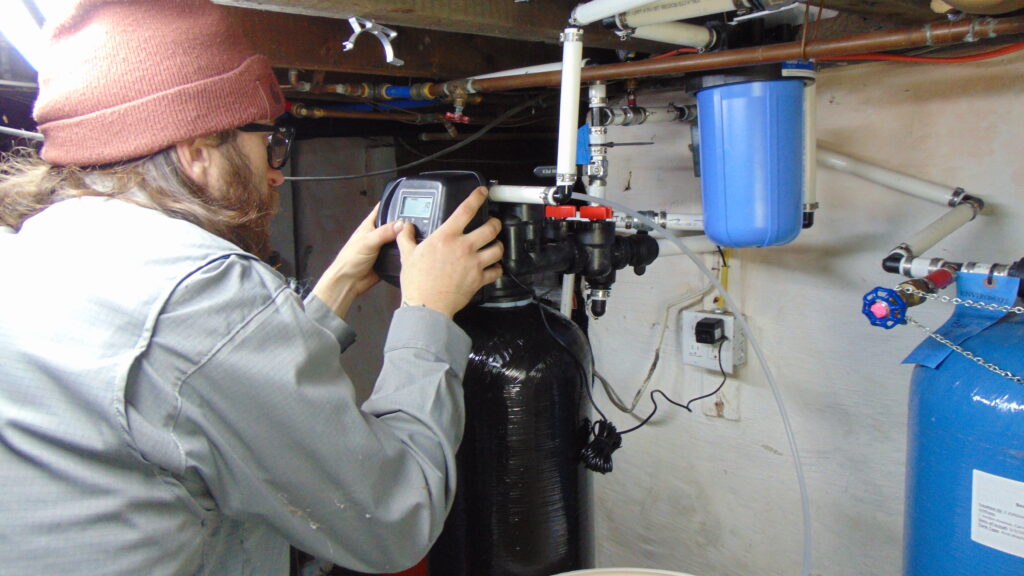Water is an indispensable part of life, with its quality affecting not only our health but also the longevity and efficiency of our various appliances. Water conditioning is a crucial process, often misunderstood, that serves to enhance the quality of water to make it more suitable for its intended purposes. Whether you’re a homeowner looking to understand your home’s water system or a professional seeking to improve your water treatment skills, this post is designed to enhance your knowledge and, as a result, your approach to water conditioning services NJ.
Defining Water Conditioning: What Is it and Why It Matters
Water conditioning is the systematic treatment of water to address numerous issues, including hardness, acidity, high levels of iron, and other impurities. This process is critical because untreated water can reduce the efficiency of plumbing systems, decrease the lifespan of water-using appliances, and even affect personal comfort and health.
The Role of Water Conditioning Systems
Conditioning systems come in various types, from simple filters to complex reverse osmosis units. They all serve the primary purposes of removing or altering the concentrations of substances in water, achieving desirable quality that’s safe, clear, and pleasant to use.
Types of Water Conditioning Processes
- Filtration
Mechanical filtration involves passing water through a mesh or a porous substance that traps particles. This is effective for removing sediment, silt, and other large visible impurities.
- Softening
Water softening is the process of removing calcium, magnesium, and other metal cations that cause hard water. It’s one of the most common forms of water conditioning and often performed using ion-exchange resins.
- The Ion-Exchange Process:
Softeners swap calcium and magnesium ions for sodium or potassium ions in the resin, reducing water hardness but increasing sodium levels in the water.
- Reverse Osmosis
RO is a water purification process that uses a partially permeable membrane to remove ions, molecules, and larger particles from drinking water. It’s an effective way to treat water for its taste and ability to preserve.
- UV Disinfection
Ultraviolet light is a chemical-free disinfection method that neutralizes bacteria, viruses, and other pathogens by disrupting their DNA.
- Chemical Treatment
Certain chemical compounds can be added to water to neutralize pH, reduce hardness, or precipitate impurities for easier filtration.
Water Testing
Testing your water is a crucial step in understanding its health and recognizing the need for conditioning. Water testing kits are readily available and should be used to check for the presence of contaminants
Choosing the Right Water Conditioning System for Your Needs
Selecting a water conditioning system is not a one-size-fits-all decision. It should be based on the type and severity of your water’s issues, your budget, and your preference for treatment methods. Professionals can offer valuable advice, but ultimately, it’s your environment and health that are at stake, so understanding the options is key.
Maintaining Your Water Conditioning System
Setting up a water conditioning system is a significant step, but it’s just the beginning. Regular maintenance is crucial to ensure that the system operates effectively.
- Filters and Membranes: These need to be replaced periodically to prevent a drop in performance.
- Resin Beds: Softeners need their resin beds recharged with new material to maintain their effectiveness.
- UV Lamps: The bulbs in UV systems need replacement according to manufacturer guidelines to sustain their disinfecting power.
Health and Well-being: The Personal Impact of Water Conditioning
The effects of well-conditioned water go beyond the technical and regulatory aspects. It is about enjoying clean, quality water that promotes health and well-being.
- Better Hydration: Clean water can hydrate the body more effectively, improving overall health.
- Reduced Toxin Exposure: Chemicals and pathogens in water can be harmful when ingested or even absorbed through the skin.
- Improved Digestion: Quality water can support healthy digestion and regular bowel movements.
- Softening Effects: Conditioned water can lead to softer, less irritated skin and healthier hair.
- Reduction of Allergens: Clean water can help reduce exposure to allergens that may be present in untreated water.
- Aesthetic Improvements: Clear, odorless water is often beneficial from an aesthetic standpoint, enhancing the showering or bathing experience.
Water is life, and its importance to our well-being cannot be overstated. From the home to the community, quality water is the bedrock of health and prosperity. By understanding the ABCs of water conditioning, you are better equipped to take charge of this pivotal resource, ensuring that the water you use is of the highest quality.




